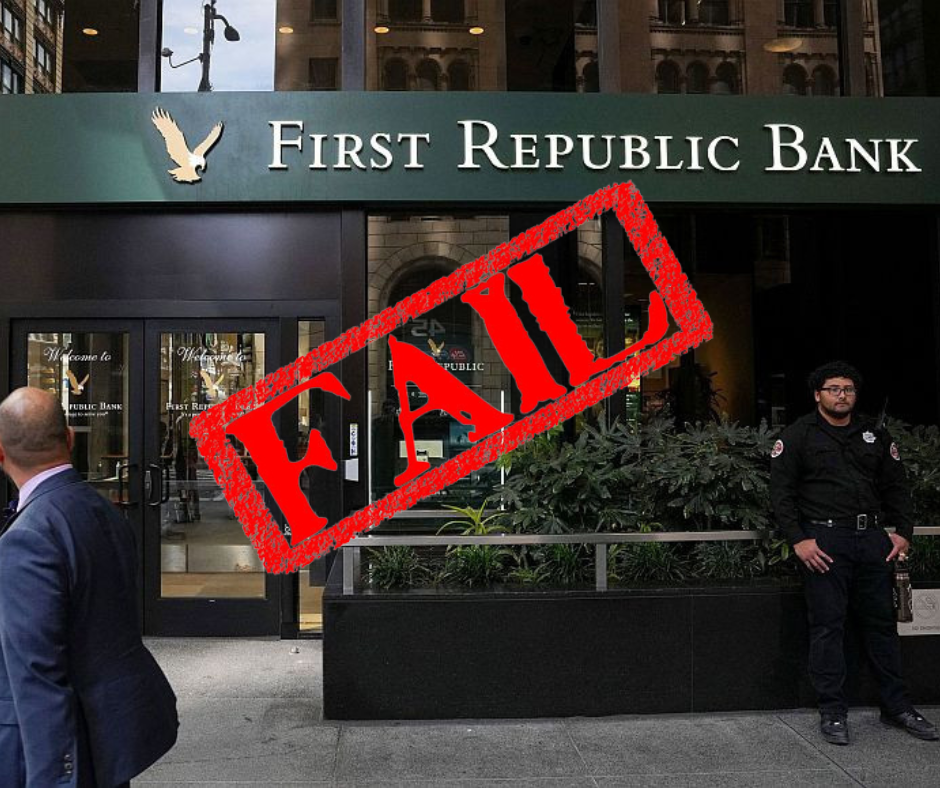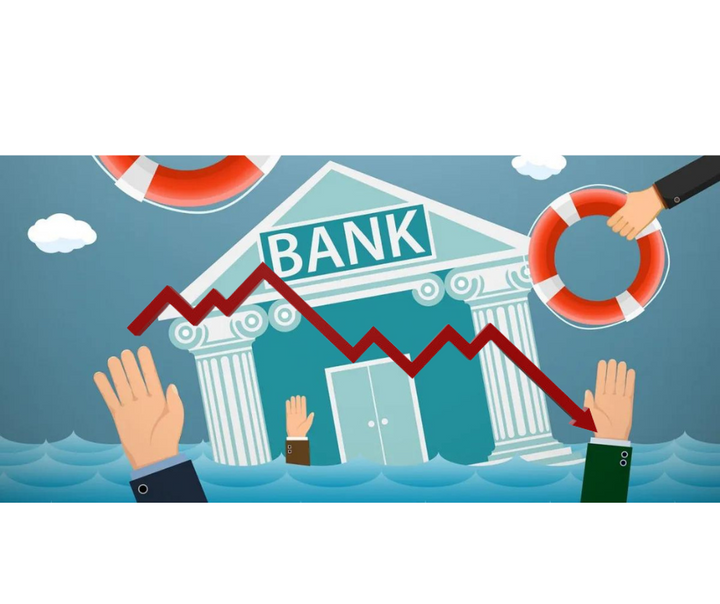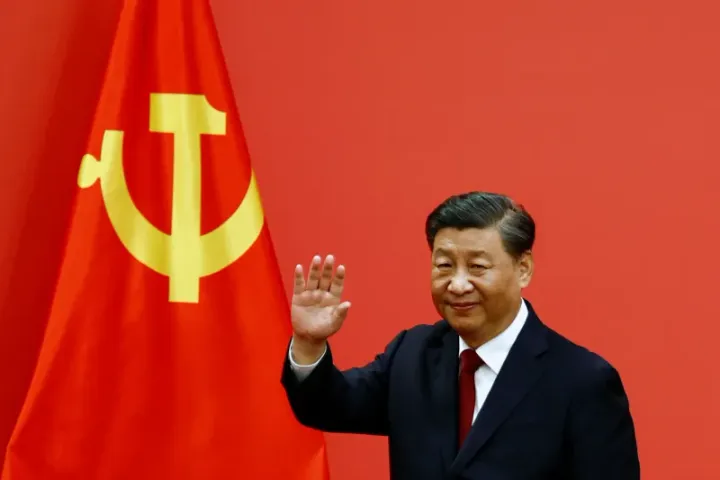First Republic Bank collapses: what happens next?

Yesterday (Mon. May 1st, 2023) the Federal Deposit Insurance Corporation (FDIC) announced in a press release that the Californian First Republic Bank is closed by the Californian Department of Financial Protection and Innovation. Rapidly the FDIC managed to make the bank available for purchase through an auction process and JP Morgan jumped in to take control of it.
First Republic's (FRC) failure is the biggest one in USA's banking system since 2008 and the financial crisis and it even surpassed the recent collapse of Silicon Valley Bank (SVB). SVB managed approximately 220 billion USD of total assets while FRC had almost 229.1 billion USD under their balance sheet.
First Republic Bank's stock lost more than 97% of its value since March 10th and more than 75% since April 24th, closing at 3.51$ on Friday.
Why ?
As it was stated in a previous article banking systems are constructed on the assumption of powerful public confidence. The collapses of Signature Bank, Silvergate Bank and Silicon Valley Bank have created an unstable environment in the banking sector and the weakest links of it usually face the adverse consequences first. To prevent such a sequence with the First Republic Bank earlier the previous month, 11 big systemic banks provided FRC with an additional 30 billion USD to boost its liquidity. As it is clear now, that was still not enough to cover the demand of 100 billion USD withdrawal requests from its clients on April 24th and the bank run resulted in one more bank failure.
Are the reasons the same as SVB ?
On one hand the root for many of the bank collapses of the previous period is the loss of confidence to the financial institution that results in a bank run. On the other hand though, the loss of confidence is as in the case of SVB justified. It is well-known now that SVB mismanaged the risks at hand and was way too exposed to long-term bonds that resulted in lack of liquidity and in FRC's case the reasons, although not the same, are very similar. First Republic Bank also mismanaged its capital allocation and took great risks by providing wealthy individuals mortgages to buy expensive luxurious houses (also called jumbo loans) if they were to deposit a portion of their money at the bank. As it is with long-term treasury bonds, mortgages also belong to long-term debt-related assets that lost their value due to rapid interest rate hikes.
JP Morgan is the winner, AGAIN!
The largest bank in the USA by total assets, JP Morgan is once again the winner of the deal as it is getting 92 bil. USD in deposits along with 173 bil. USD in loans and 30 bil. USD in securities. In the financial crisis of 2008, it was again JP Morgan that bought the collapsed Washington Mutual, which was the largest savings and loan association in the country. The financial institution provisions a 2.6 bil. USD one-time gain and expects a 500 million $ increase on its annual earnings. JPM's stock rose from 138.04$ on Friday to 141.30$ on Monday.
What's the problem?
As it is constantly mentioned, the loss of confidence and credibility to the banking system and a further domino effect that will cause more bankruns is the number one issue to the current banking crisis. In addition to that, bank collapses force the competent authorities (such as the FDIC and the Fed) to give "public's money" (government capital) to financial institutions in order to stabilize the system. In the case of First Republic Bank, the FDIC agreed on a share-loss agreement in order to accomplish the deal, that will cost the Deposit Insurance Fund 13 billion dollars.
What's next?
The current situation in the banking sector is highly volatile and although a financial crisis as the one in 2008 seems improbable, there are still risks to face. As the International Monetary Fund (IMF) announced in April, the ongoing events of the financial systems will play an important role to the overall growth of the global economy.
References:
https://www.fdic.gov/news/press-releases/2023/pr23034.html
https://www.cnbc.com/2023/05/01/first-republic-bank-failure.html
https://finance.yahoo.com/quote/FRC/?guccounter=1&guce_referrer=aHR0cHM6Ly93d3cuZ29vZ2xlLmNvbS8&guce_referrer_sig=AQAAAJMAx0lUefue5HggsomwcyzhzbhT6OiODNnIrRo4305d0PFwso-AbuF4hFqvDSXdVWAf-jIQDcV-Yud8xafCVtu-F_W2vPayx21NL8x7JFWxSlaRtONBWf6V_Aet818yP9dUeVTc8nYbY3BaJcwRNRXAYrs0_rLcLwmIyco7BH_F#eyJpbnRlcnZhbCI6ImRheSIsInBlcmlvZGljaXR5IjoxLCJ0aW1lVW5pdCI6bnVsbCwiY2FuZGxlV2lkdGgiOjgsImZsaXBwZWQiOmZhbHNlLCJ2b2x1bWVVbmRlcmxheSI6dHJ1ZSwiYWRqIjp0cnVlLCJjcm9zc2hhaXIiOnRydWUsImNoYXJ0VHlwZSI6ImxpbmUiLCJleHRlbmRlZCI6ZmFsc2UsIm1hcmtldFNlc3Npb25zIjp7fSwiYWdncmVnYXRpb25UeXBlIjoib2hsYyIsImNoYXJ0U2NhbGUiOiJsaW5lYXIiLCJwYW5lbHMiOnsiY2hhcnQiOnsicGVyY2VudCI6MSwiZGlzcGxheSI6IkZSQyIsImNoYXJ0TmFtZSI6ImNoYXJ0IiwiaW5kZXgiOjAsInlBeGlzIjp7Im5hbWUiOiJjaGFydCIsInBvc2l0aW9uIjpudWxsfSwieWF4aXNMSFMiOltdLCJ5YXhpc1JIUyI6WyJjaGFydCIsIuKAjHZvbCB1bmRy4oCMIl19fSwic2V0U3BhbiI6e30sImxpbmVXaWR0aCI6Miwic3RyaXBlZEJhY2tncm91bmQiOnRydWUsImV2ZW50cyI6dHJ1ZSwiY29sb3IiOiIjMDA4MWYyIiwic3RyaXBlZEJhY2tncm91ZCI6dHJ1ZSwiZXZlbnRNYXAiOnsiY29ycG9yYXRlIjp7ImRpdnMiOnRydWUsInNwbGl0cyI6dHJ1ZX0sInNpZ0RldiI6e319LCJzeW1ib2xzIjpbeyJzeW1ib2wiOiJGUkMiLCJzeW1ib2xPYmplY3QiOnsic3ltYm9sIjoiRlJDIiwicXVvdGVUeXBlIjoiRVFVSVRZIiwiZXhjaGFuZ2VUaW1lWm9uZSI6IkFtZXJpY2EvTmV3X1lvcmsifSwicGVyaW9kaWNpdHkiOjEsImludGVydmFsIjoiZGF5IiwidGltZVVuaXQiOm51bGwsInNldFNwYW4iOnt9fV0sInN0dWRpZXMiOnsi4oCMdm9sIHVuZHLigIwiOnsidHlwZSI6InZvbCB1bmRyIiwiaW5wdXRzIjp7ImlkIjoi4oCMdm9sIHVuZHLigIwiLCJkaXNwbGF5Ijoi4oCMdm9sIHVuZHLigIwifSwib3V0cHV0cyI6eyJVcCBWb2x1bWUiOiIjMDBiMDYxIiwiRG93biBWb2x1bWUiOiIjZmYzMzNhIn0sInBhbmVsIjoiY2hhcnQiLCJwYXJhbWV0ZXJzIjp7IndpZHRoRmFjdG9yIjowLjQ1LCJjaGFydE5hbWUiOiJjaGFydCIsInBhbmVsTmFtZSI6ImNoYXJ0In19fX0-
https://en.wikipedia.org/wiki/First_Republic_Bank
Further Reading:
https://www.jarfinance.com/interest-rates-how-debt-shapes-the-modern-world/
https://www.jarfinance.com/china-beat-growth-expectations/
https://www.jarfinance.com/bank-crisis-what-happened-are-we-still-throu/




Comments ()